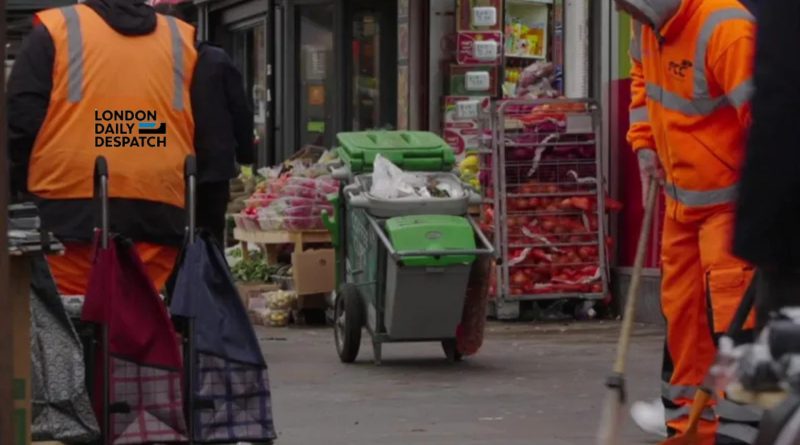Councils Battle to Prevent ‘Grotification’ of London
Local councils in London are facing significant challenges. They must balance their budgets while keeping essential public services running. One of the most visible areas affected is the cleanliness and maintenance of the city. As funds are stretched thin, many residents notice a decline in vital services like street cleaning, waste collection, and park maintenance. This situation has led to a growing concern over what some are calling the “grotification” of the city.
Budget Allocations and Their Impact
A large portion of local council budgets is now directed towards housing and social care. This leaves limited funds for discretionary services. Street cleaning, park upkeep, and other similar services are experiencing severe budget cuts. These changes have resulted in dirty streets, overgrown parks, and a decline in neighborhood cleanliness.
A recent YouGov poll highlights these issues. Approximately one-fifth of Londoners described their city as “dirty.” This perception of declining living conditions has contributed to the use of the term “grotification.” Tony Travers from the London School of Economics (LSE) coined this term to reflect the overall deterioration of city life across London.
Concerns from Local Leaders
Local leaders are raising alarms about this situation. For example, Ray Morgon, the leader of Havering Council, is particularly worried. He noted that as funds are redirected towards social services, public spaces are increasingly ignored. In Havering, a staggering 70% of the budget is now dedicated to housing and social care. This substantial allocation leaves limited resources for services that maintain public cleanliness, such as street cleaning and graffiti removal.
Morgon stated, “It means those discretionary services now are a smaller proportion of our overall budget – and as a result, there has been a decline.” He emphasizes that when public spaces look neglected, it impacts residents’ pride in their neighborhoods. When streets and parks appear unkempt, it affects the overall sense of community well-being.
To combat this decline, Havering Council has initiated a volunteer program. This initiative focuses on cleaning up “grot spots,” or areas heavily impacted by neglect. The council recognizes the importance of resident involvement in maintaining community pride.
Efforts to Restore Cleanliness
As local councils grapple with these challenges, many are looking for solutions. They are exploring ways to manage resources more effectively. For instance, Croydon Council has rolled out a new, cost-effective streetlight contract. They aim to reduce expenses while maintaining service quality. Richmond Council is adopting a more strategic approach by investing in smarter solutions. They are increasing recycling efforts to cut waste collection costs.
Julia Neden-Watts, a leader at Richmond, explained the challenges posed by rising costs. She noted that increasing national insurance costs mean contractors will be more expensive. To counteract these rising costs, the council is seeking ways to maximize savings through sustainable practices.
The Ongoing Funding Crisis
Despite these efforts, cuts to local government funding remain a critical issue. Councils are working hard to protect essential services like social care. However, this focus has led to steep reductions in other areas. Some services, including street cleaning, have faced cuts of up to 50%.
This reduction has angered many residents. They feel neglected by local authorities as public spaces fall into disrepair. The frustrations echo a wider sentiment—that the decline in service quality is diminishing their quality of life.
Looking Ahead
The term “grotification” encapsulates the difficulties councils face as they try to balance budgets. This situation highlights the tough choices local authorities must make in providing essential services while managing financial constraints. As councils continue to navigate this tricky landscape, they are turning to innovative solutions and community engagement.
Despite the challenges, the efforts to maintain public spaces are evident. Local councils understand the significance of cleanliness and safety, and they are actively seeking ways to improve services. However, the pressure of austerity measures continues to complicate these efforts. The challenges associated with maintaining public spaces are becoming increasingly apparent for London and its residents.


Pingback: medicament kamagra aut rabais
Pingback: cheapest buy enclomiphene australia online generic
Pingback: cheap androxal cheap to buy online
Pingback: get dutasteride cheap in canada
Pingback: get flexeril cyclobenzaprine cheap generic uk
Pingback: buying gabapentin real price
Pingback: ordering fildena cheap sale
Pingback: ordering staxyn no rx needed
Pingback: how to buy itraconazole no prescription online
Pingback: how to buy avodart usa overnight delivery
Pingback: ordering xifaxan generic brand
Pingback: generic rifaximin in pharmacy
Pingback: kamagra z kanadských lékáren